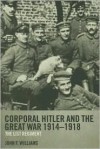Currently reading
SEE WHAT 'A CUP OF TEA' CAN LEAD TO

Though a well-written book, "A CUP OF TEA" reads much like a melodrama one finds in a Harlequin or Mills and Boon romance novel.
The drama begins on a nighttime street in Manhattan in January 1917. A ill-clothed young woman shudders against a street light, hoping for succour. But not the kind of succour a man discreetly offers her as he walks by. Then along comes Rosemary Fall, a wealthy young woman blessed with all the advantages affluence and social connections can give. Rosemary at first kindly offers the young lady a few dollars to help her make ends meet. And then, Rosemary invites the shivering, ill-clad woman to her home (with she shares with her widowed father) for a cup of tea.
What resulted from that cup of tea would set in train a series of events that would radically change the course of Rosemary's life and the lives of 2 of her closest friends. To say more would give away the gist of the story.
"A CUP OF TEA" is very, very readable. The chapters were usually about 5 pages long. But there were some glaring inconsistencies in the story that I couldn't ignore. One involves the work Rosemary carried out as a volunteer nurse in a VA Hospital. There was NO VA Hospital in 1910s America. The VA (Veterans Administration) wasn't established until July 1930! There was also mention of a ship sailing from America to Britain as "an American carrier", which was sunk by a German U-boat. As far as ocean-going vessels are concerned, a 'carrier' is a warship that carries warplanes in its hold for use in offensive operations against an enemy. During the First World War, the U.S. did NOT have aircraft carriers. That wouldn't take place until the 1920s!
Were I to assess "A CUP OF TEA" on the basis on its writing style, I'd rate it 3 stars. But because of the inconsistencies in it that I cited earlier - and the elongation of some of the time sequences that made the story in certain instances depart from reality, I can at best give "A CUP OF TEA" two stars.













